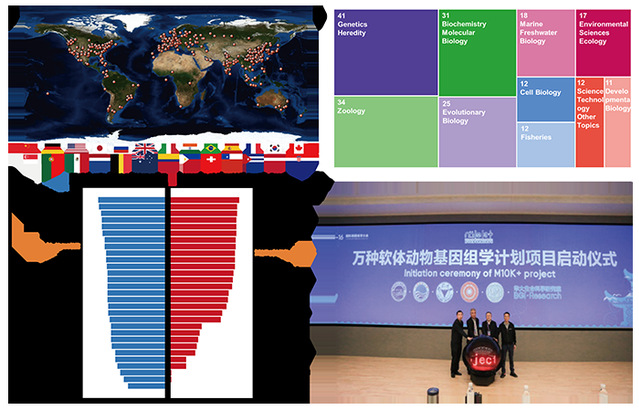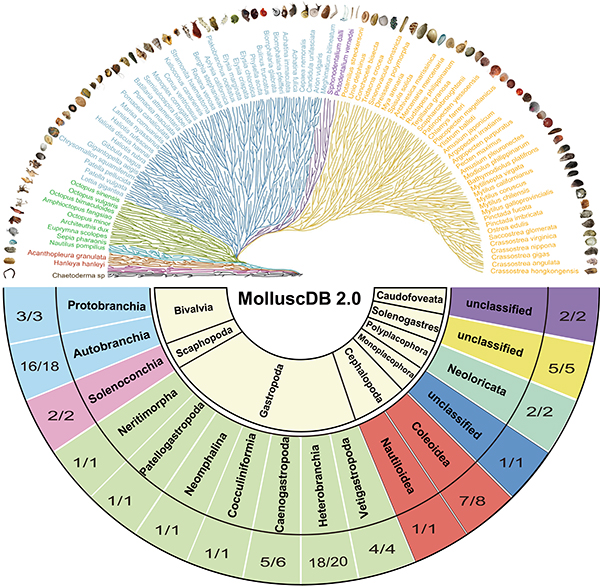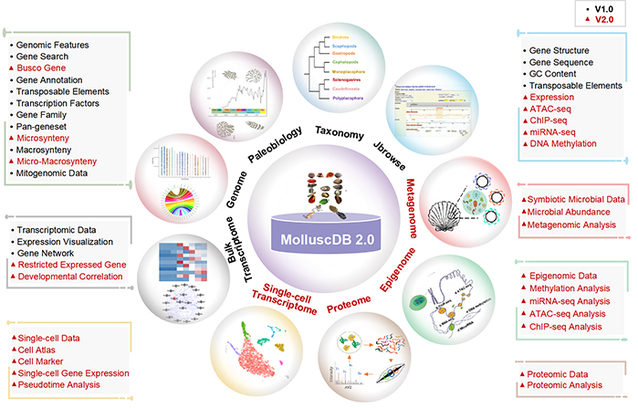On November 12th, OUC’s research team led by Academician Bao Zhenmin and Professor Wang Shi from the Key Laboratory of Marine Genetics and Breeding, Ministry of Education, launched MolluscDB 2.0: a comprehensive functional and evolutionary genomics database for over 1400 molluscan species online in Nucleic Acids Research, a top-tier journal in the field of international biological information databases. To date,MolluscDB 2.0 stands as the largest comprehensive database for molluscan functional and evolutionary genomics worldwide.
The research team initiated the International Mollusk 10,000 Genomes Project (M10K project) in 2021, and built MolluscDB (http://mgbase.qnlm.ac), the world's first comprehensive genome database for mollusca. This database integrated approximately 1,000 sets of genomic and transcriptomic data of molluscs, and provided multiple tools for comparative genomic analysis. Since its official launch and operation, MolluscDB has attracted nearly 15,000 online visits from more than 70 countries, becoming an important omics resource center for global molluscan research.
In recent years, there has been an explosive surge in highly precise and multi-dimensional functional genomics data, bringing new development opportunities to molluscan research. However, how to integrate multi-omics resources featuring complexity, high dimensionality, and vast volume and build a customized analysis platform suitable for the biological characteristics of malacology remains a significant challenge for the international molluscan research community. To address this challenge, OUC’s research team has upgraded the original MolluscDB to MolluscDB 2.0, systematically sorted and integrated the complex high-dimensional omics data resources of molluscs, committed to developing a rich set of customizable analysis tools for systems biology (including the recently developed PanSyn toolkit, Nature Protocols 2024). The team aims to create the most systematic and comprehensive analysis platform for molluscan functional and evolutionary genomics.
MolluscDB 2.0 offers an open-access database platform with the broadest coverage of species, the richest omics resources, and the most comprehensive analytical functions. It enables the systematic integration and in-depth analysis of complex and massive multi-omics resources, helps uncover the biological mysteries and evolutionary history of molluscs in a more comprehensive way, and will also provide strong support for exploring important gene resources and carrying out genetic breeding in shellfish.










